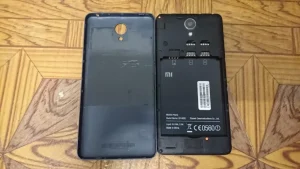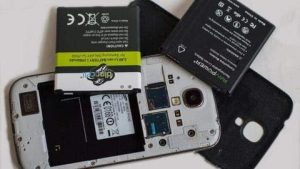After making USB Type-C charging ports mandatory on all smartphones, tablets and laptops.
The European Union (EU) has now agreed to new laws and regulations about removable batteries aimed at making sure batteries are more durable and reusable.
These new regulations will present a new set of challenges for consumer technology companies and battery manufacturers, as the new law applies to the entire lifecycle of batteries.

The entire battery life includes material extraction, industrial production, and disposal.
The new EU law will apply to all batteries sold in the EU, including batteries used in electronics, industrial batteries, automotive batteries and batteries used in two-wheelers and electric vehicles (VEs).
From the beginning of 2024, battery manufacturers in the EU will have to report the full carbon footprint of their products, from extraction to recycling.
This data will then be used to set a maximum CO2 limit for batteries that will come into effect from July 2027.

They must use a defined percentage of recycled materials, i.e. 16% cobalt, 85% lead, 6% lithium. , and 6% nickel.
The new regulations also require consumer technology brands to design their devices so that their batteries can be easily replaced, by removing the battery cover or removing easily accessible screws.
More About The EU law Concerning Removable Batteries

Does this mean the return of removable batteries on smartphones? Well, it will at least make electronic devices more durable and improve their lifespan.
It will also reduce profit margins for businesses when repairing and maintaining equipment.
If passed, the new regulations will ensure that batteries sold in the EU region last longer globally, eventually setting the standard for the rest of the world.
The rules not only assess carbon emissions, but companies involved in battery production in the EU should also identify, prevent and address human rights and labor issues in their supply chains.

The EU only applies this new law to key raw materials such as lithium, nickel, cobalt and graphite.
In addition, the EU has also set ambitious debt collection targets. It aims to collect 45% of recyclable materials from electronic devices by 2023 and 73% by 2030.
In addition, for electric vehicles, it aims to collect 100% of recyclable materials. . Well, the new EU Battery Regulation is awaiting final approval from Parliament and the Council.
It is sure to pose tough challenges for consumer electronics companies like Apple, Google, Samsung and other companies as they have to rethink their device design.
Even battery manufacturers like Panasonic and Samsung SDI.
